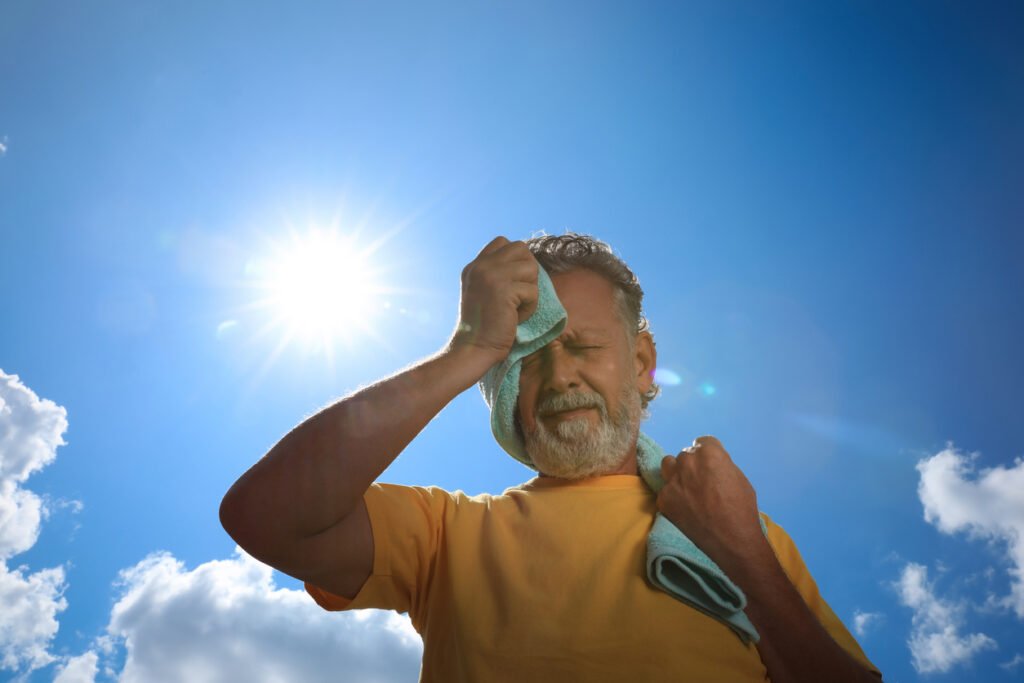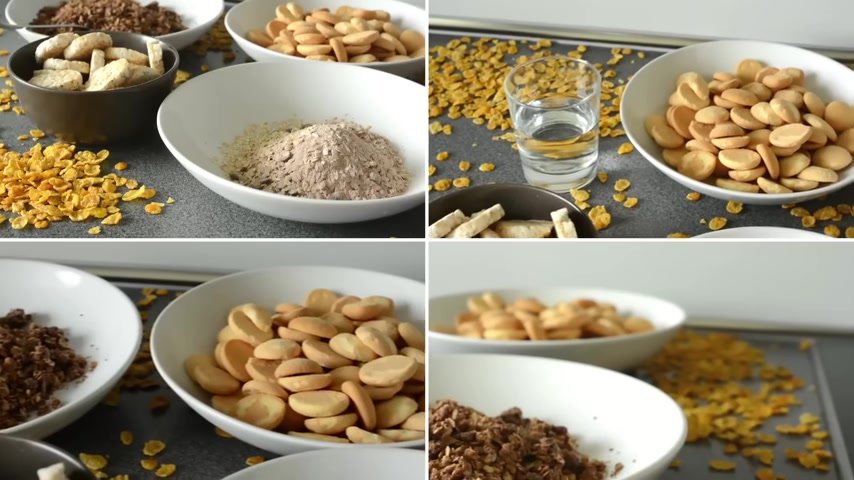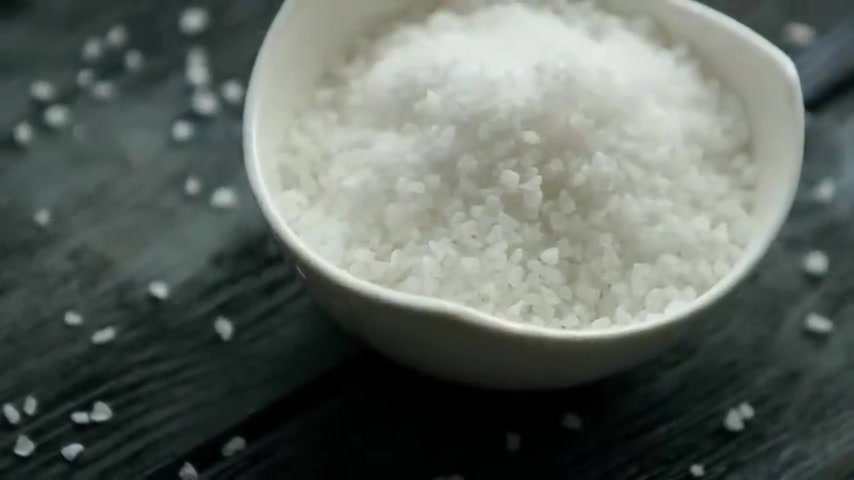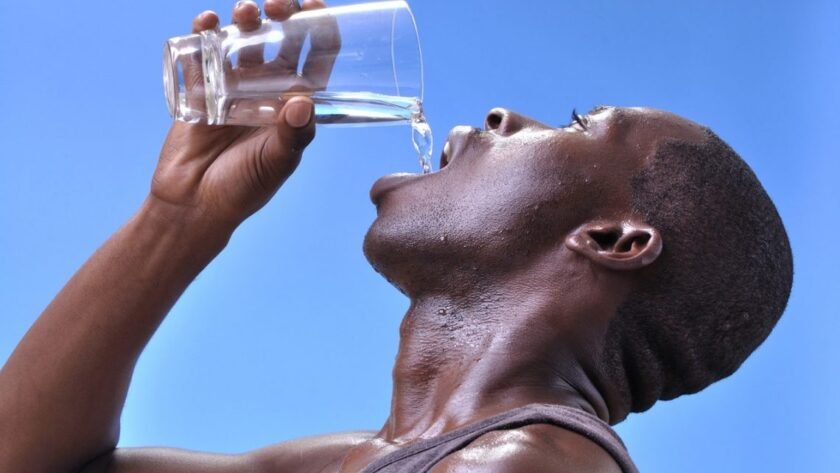Table of Contents
#1 mistake people make when drinking water
- Thinking they’re hydrated just because they’re drinking a lot of fluids
- Not addressing the underlying causes of dehydration
the average liquid consumption for Americans
- 4.3 cups of plain water
- 5.5 cups of other beverages (soft drinks, coffee, alcohol, tea, etc.)
Why are common beverages problematic for hydration?
- Caffeine acts as a diuretic
- Glucose in sweetened drinks locks up fluids
- Alcohol has a potent diuretic effect
What’s important for proper hydration besides water?
- Electrolyte balance, especially sodium and potassium
- Proper ratio of potassium to sodium (2:1)
Should you only drink when you’re thirsty?
- Not always, as thirst can be misleading
- Salt cravings may indicate various hydration issues
The fluid should you drink daily
- 2 to 3 liters (8 to 12 cups) of water for the average person who exercises
How can you improve hydration?
- Drink enough water
- Add sea salt and other electrolytes to water
- Consider adding lemon or apple cider vinegar
- Balance fluid intake with proper electrolyte levels
What are the risks of drinking too much water without enough salt?
- Dizziness when standing up
- Headaches
- Fatigue
- Low blood pressure
So let’s dive into the details…
Proper hydration is crucial for our health and well-being, yet many people unknowingly make a big mistake when drinking water. This article delves into the average liquid consumption of Americans, revealing surprising statistics about our drinking habits. We’ll explore the most common hydration errors, including the biggest misconception about drinking water, and examine the impact of different beverages on our body’s water balance.
You’ll learn about the importance of electrolytes in maintaining proper hydration and why simply drinking water alone isn’t always enough.
The average amount of liquid consumed by Americans

Let’s talk about the number one mistake that people make when they’re drinking water. Now check this out, these are some interesting stats: the average amount of liquid consumed by Americans,
if we average men and women okay, and this is based on cups, but for my friends in Europe including Dennis, one cup equals 236 grams, alright).
An average person consumes 4.3 cups of just plain water. Yet they drink a lot more fluids, but only a little more than four cups of water. That is definitely on the extreme low side, alright.
Now the other things they drink, okay, that’s included in all these liquids: soft drinks 1.7 cups, coffee one and a half cups, alcohol 1.1 cup, tea a little less than one cup 0.9, 0.8 cups diet soda, milk is a half of a cup, and then juice is slightly less than a half of a cup 0.4.
So as you can see, an average person consumes a lot of liquid but not a lot of water.
| Beverage Type | Consumption (Cups) | Consumption (Grams) |
|---|---|---|
| Plain Water | 4.3 | 1,014.8 |
| Soft Drinks | 1.7 | 401.2 |
| Coffee | 1.5 | 354.0 |
| Alcohol | 1.1 | 259.6 |
| Tea | 0.9 | 212.4 |
| Diet Soda | 0.8 | 188.8 |
| Milk | 0.5 | 118.0 |
| Juice | 0.4 | 94.4 |
Note: 1 cup = 236 grams
This table shows the average daily liquid consumption for an average person, combining data for men and women. The amounts are listed in both cups and grams for easy reference.
Key Points:
- Average American consumes 4.3 cups of plain water daily
- Other beverages consumed include soft drinks, coffee, alcohol, tea, diet soda, milk, and juice
- Total liquid consumption is high, but water intake is low
What happens when you drink the wrong thing
Now let’s take a look a little bit deeper. What happens when you consume things that are caffeinated like the soft drink, like the coffee, some teas, diet sodas possibly?

Caffeine acts like a diuretic, so anything that’s a diuretic is going to create more dehydration. It’s going to get rid of fluid. Anything with glucose, whether you’re sweetening your alcoholic beverage, your coffee, of course the soft drinks, and the juice, also is a powerful diuretic as well as that glucose tends to lock up fluids as you drink them.
This is why people that drink a lot of sweets are retaining a lot of fluid because this glucose is stored as glycogen with a good amount of water. So for every molecule of glucose you store, roughly about three molecules of water, locking this water up making it unavailable to you.
So anything with glucose, anything with sugar really is dehydrating to your tissues.
Now what about alcohol? Well, what happens after a night of drinking? You wake up, you’re completely dehydrated, you’re very thirsty, your brain actually hurts because of the dehydration. So alcohol has a very potent diuretic effect.
Key Points:
- Caffeine acts as a diuretic, causing dehydration
- Glucose in drinks locks up fluids, making them unavailable
- Alcohol has a potent diuretic effect, leading to dehydration
Mistake people make when drinking water
So the big mistake is that thinking that you are hydrated because you’re drinking a lot of fluids. And this big push to get everyone to drink more without really fixing the reason why they might be dehydrated in the first place is another big mistake.
Because if you’re like the average American consuming over 60 percent of your calories being carbohydrate in the form of refined carbohydrates, you’re worsening your hydration, you’re creating more dehydration.
Now will it help? Maybe it’ll help a little bit, but it doesn’t fix the underlying problem. I mean, this is the big problem that I have with medicine is that even if you bring up the word cure, right,
they basically interpret cure as being, you know, quackery, non-scientific. When you think about it, well, cure is just resolving a problem. Why can’t we just cure something?
Medicine has become more about managing the problem, managing the symptoms, but as far as curing someone, you’re crossing the line.
Key Points:
- Assuming hydration from drinking lots of fluids is a mistake
- High refined carbohydrate consumption worsens hydration
- Focus should be on resolving underlying causes, not just managing symptoms
Electrolyte ratios
So this does relate to this whole topic of dehydration because if you really want to be hydrated, you have to look at all the different pictures. It’s not just about drinking more water.

Let’s just take for example your sodium levels, okay. Sodium is needed to create hydration. So are other electrolytes like potassium and magnesium, and to be able to have sodium hold fluid correctly, you also need a balance of potassium.
You need this twice as much potassium as you have sodium, and so the amount of sodium is not nearly as important as these ratios. So it is important to have a good amount of potassium and a good amount of sodium, but the ratio should be like two to one.
Key Points:
- Sodium, potassium, and magnesium are crucial for hydration
- Proper electrolyte ratios are more important than absolute amounts
- Ideal potassium to sodium ratio is 2:1
Should you only drink when you’re thirsty?
And so if we take this idea that just drink when you’re thirsty, that can be confusing too as it relates to this mineral sodium. So let’s say for example you’re a diabetic, right, and you’re thirsty.
Well, the problem with diabetics is they’re usually excessively thirsty and they’re peeing a lot. They’re trying to compensate for the loss of fluid that goes through your body because the more glucose they have in their blood, the more they’re going to pee.

And so if you’re diabetic and you keep drinking all this water, you may neutralize the problem, but you’re not going to ever correct anything because the actual root cause of the problem is never corrected. And that is just they’re consuming too many carbs.
Now what about in the situation where you’re not thirsty, okay, but you’re craving salt? Well, you really want to understand what causes a salt craving. Um, it could be your adrenals are burnt out.
The worse off your adrenals are, the more salt you’re going to crave. It could be you just worked out and you sweat a lot and you lost a lot of salt. Or it could be it’s hot out or you have a condition where you sweat a lot even if you don’t exercise and you lose all the sodium.
Key Points:
- Thirst alone may not be a reliable indicator of hydration needs
- Diabetics may experience excessive thirst due to high blood glucose
- Salt cravings can be caused by various factors, including adrenal issues and excessive sweating
How much fluid do you need?
Or let’s say you’re on a medication that you’re taking diuretics, right, and that’s pulling all the salt out and you’re craving salt. It’s also pulling potassium out too.
Or let’s say you consume a lot of potassium in electrolyte powder but you don’t have enough salt. That can create an imbalance too.

Or let’s say you’re fasting and you’re not consuming anything and you’re drinking all this water for example, yet you’re not taking enough salt with that.
Your body might then crave salt. Even if you do keto, for example, the ketogenic diet, you tend to lose a lot of fluid and with that you can lose your electrolytes including potassium.
The more water you drink, the more salt you should crave because drinking just a lot of plain water will deplete your electrolytes to a certain degree. And so these people that are forcing themselves to drink like a gallon of water a day without any salt develop a condition called hyponatremia.
That is a condition where you have a deficiency of sodium in your blood and that’s a very, very dangerous.
And so if we combine drinking a lot of this water with exercise, okay, and not taking the sodium, a person can be very, very, very dehydrated because what hydrates someone is not just water. It’s the balance of these electrolytes that go in the cell that help you retain the fluid in the correct amount.
Key Points:
- Medications, fasting, and ketogenic diets can affect electrolyte balance
- Drinking large amounts of plain water without salt can lead to hyponatremia
- Proper hydration requires a balance of water and electrolytes

So to really correct the problem of dehydration, yes, you need to drink a good amount of fluids, but you also need a good amount of sea salt and other electrolytes.
And I would say for the average person that does exercise to some degree should be consuming between two to three liters.
That’s 8 to 12 cups on average of actual water, not these other things like coffee and tea and alcohol and things like that.

And I would especially recommend that if someone is prone to kidney stones, if they’re on the ketogenic diet, just by making sure that your urine is not supersaturated, you can prevent kidney stones even if you’re prone to kidney stones.
How to stay hydrated
But with that fluid, okay, to be hydrated, you want to add the sea salts, maybe some other electrolytes, maybe in the water you add some lemon, apple cider vinegar.
But this way you’ll have both the volume of fluid you’d need as well as the hydration you need because for example, if you’re drinking too much water or not enough salt, you end up with a deficiency of volume of fluid in your blood and that can create headaches.
That can create fatigue. That can create low blood pressure. That can create a situation where you stand up and you feel dizzy.
Key Points:
- Recommended water intake: 2-3 liters (8-12 cups) daily for active individuals
- Add sea salt and other electrolytes to water for proper hydration
- Balancing water and electrolyte intake can prevent various health issues
Summary
- The average American consumes 4.3 cups of water. This is extremely low. Many people also drink other types of liquids, but many of these can damage your health.
- Drinks with caffeine, sugar, and alcohol will actually worsen dehydration. The biggest mistake people make when it comes to fluids is thinking they are hydrated just because they are drinking a lot of liquids.
- There has been a big push to get people to drink more without fixing the root cause of their dehydration—and this is another big mistake.
- We have to consider the big picture, which includes electrolytes. Electrolytes like sodium, potassium, and magnesium are essential for hydration. But you have to have them in the correct amounts to be effective.
- The average person who exercises will need two to three liters of water per day. But, to stay hydrated, you need to add sea salt and other electrolytes to your water. You could also add lemon or apple cider vinegar to your water for additional benefits.
FAQ
What are the mistakes people make while drinking water?
Common mistakes include:
- Not drinking enough water throughout the day
- Drinking too much water at once, which can lead to overhydration
- Ignoring electrolyte balance when increasing water intake
- Relying solely on thirst as an indicator of hydration needs
- Consuming too many diuretic beverages (caffeine, alcohol) without compensating with extra water
What are the most common problems with drinking water?
Common problems include:
- Contaminants in tap water (e.g., lead, chlorine, microplastics)
- Difficulty in accessing clean, safe drinking water in some areas
- Unpleasant taste or odor, which may discourage regular consumption
- Overreliance on bottled water, contributing to plastic waste
- Confusion about how much water is truly necessary for optimal health
What not to do when drinking water?
- Don’t drink water too quickly, especially when very thirsty
- Avoid drinking large amounts immediately before, during, or after meals
- Don’t rely exclusively on water to meet all hydration needs (electrolytes are important too)
- Don’t drink from unsafe sources without proper filtration or treatment
- Avoid drinking extremely cold water, especially if you have sensitive teeth or digestive issues
What is wrong when you drink a lot of water?
Drinking excessive amounts of water can lead to:
- Overhydration (water intoxication), which can dilute electrolytes in the body
- Frequent urination, potentially disrupting sleep and daily activities
- Strain on the kidneys if consumed too quickly
- Possible imbalance of electrolytes, especially if not replenished
- In extreme cases, hyponatremia (low sodium levels), which can be dangerous
Are you drinking water all wrong? (National Geographic perspective)
National Geographic highlights common misconceptions:
- The “8 glasses a day” rule isn’t universally applicable
- Thirst isn’t always an accurate indicator of hydration needs
- Water needs vary based on activity level, climate, and individual physiology
- Other beverages and foods contribute to daily fluid intake
- Overhydration can be as problematic as dehydration
Drinking water while standing myth
The myth suggests drinking water while standing is harmful, but:
- There’s no scientific evidence to support this claim
- Water is absorbed in the intestines, regardless of body position
- Drinking while standing may cause some people to drink too quickly
- Sitting may be more comfortable and encourage slower drinking
- The important factor is staying hydrated, regardless of position
10 signs you don’t drink enough water
- Persistent thirst
- Dark-colored urine
- Dry skin and lips
- Fatigue and lethargy
- Headaches
- Dizziness or lightheadedness
- Dry mouth and bad breath
- Constipation
- Muscle cramps
- Decreased urination frequency
Why do I forget to drink water?
Common reasons include:
- Busy lifestyle and distractions
- Lack of thirst cues due to chronic mild dehydration
- Not establishing a regular water-drinking routine
- Preference for other beverages
- Absence of easily accessible water sources
How to drink water
Best practices for water consumption:
- Sip water throughout the day rather than gulping large amounts
- Keep a reusable water bottle with you for easy access
- Set reminders or use apps to track water intake
- Drink water before, during, and after physical activity
- Consume water-rich foods to supplement fluid intake
What happens when you start drinking enough water?
Positive effects of proper hydration:
- Improved energy levels and cognitive function
- Better skin health and appearance
- Enhanced digestive function and regularity
- Improved physical performance
- Better temperature regulation
- Potential weight management benefits
- Reduced risk of kidney stones and urinary tract infections
Does cold water go through your system faster?
The temperature of water doesn’t significantly affect its passage through the body:
- Cold water is absorbed at nearly the same rate as room temperature water
- The body quickly warms cold water to body temperature
- Some people may feel that cold water provides a more refreshing sensation
- Extremely cold water might cause discomfort for some individuals
- Personal preference should guide water temperature choice for optimal hydration



